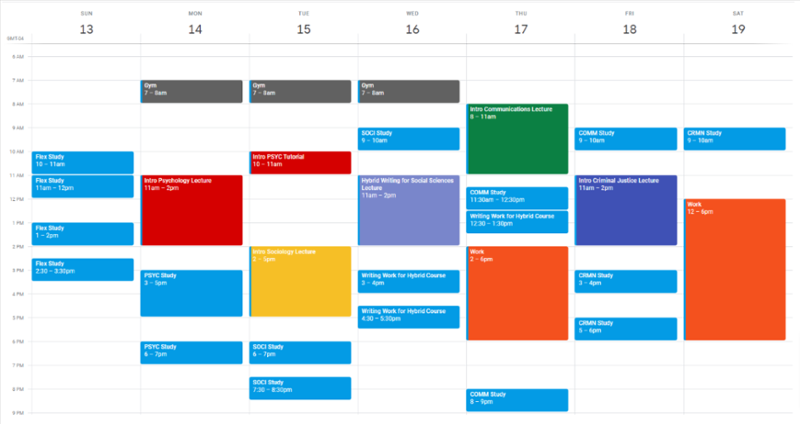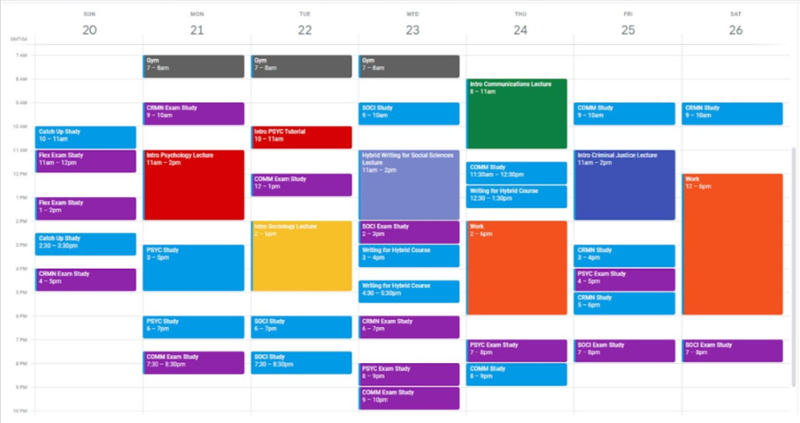Planning tools
There are many organizational tools that can help us stay organized during the exam study period. For more tips and strategies, visit the time management page.
-
Using an exam task list
Creating an exam task list will help you prepare and organize your studying. The goal of an exam task list is to help you figure out how much time you need to study for each course.
It is a good idea to start studying for your final exams at least three weeks in advance of the exam period.
Have a look at a sample exam task list.
To create your own exam task list:
- Include the exam date, course, and weighting (that is, how much of your final grade it counts toward).
- List out the content that needs to be reviewed for the exam.
- Include time to create summary notes, flashcards, and/or practice tests.
- For problem-solving courses especially, set aside time to practice different concepts.
- Be sure to review past quizzes, tests and midterms.
- Schedule time for a final, overall review.
- Estimate the time needed to review the specific task.
- Tip: Double the time you think you will need. If you end up doing it quicker than you think, you have earned some free time back. However, we often underestimate how long it will take us to complete certain tasks, so doubling the time gives us a good window to work within.
- Add the total amount of study time required.
- This will give you a big picture idea of how much overall time is required to prepare and then you can break this down into your weekly study schedule.
- Check off each task as you complete it to stay organized and feel good about your accomplishments.
Download this exam task list template to help you create your own exam task list.
-
Creating an exam study plan
Once you have your exam task list together, you will have an estimation of the total hours you will need to study. From here, you will want to map this out on your schedule.
Throughout the semester, it is helpful to create a regular study plan. Visit the time management page for more information about setting up a study plan.
Here is what a calendar view of a study plan used during the regular term might look like.

You can modify this study plan for the exam period. Here is an example of an study plan with blocks added for the exam period.

Tools for creating a study plan
- An exam study plan can be created using whatever organizational tool you are currently using.
- Begin by entering all of your exam dates, times and locations on the calendar.
- Review the task list you have created and add additional study time to your study plan.
- Look for the gaps in your current schedule and see where you can fit in some extra time to study for your upcoming exams.
- Take advantage of the short gaps! By doing even 20 minutes of studying just once a day for 7 days, you will have accumulated over 2 hours of study time that you otherwise may not have used!
- Remember, the sooner you begin studying, the easier it will be to pace your learning.
- Ideally, it is a good idea to begin studying at least three weeks before your exams so you can space out your time effectively.
- If there is not enough time to get through everything, you may have to rethink your task list and priorities.
- Finally, remember that this schedule is temporary! It might feel overwhelming for a couple of weeks but pretty soon you will be back to your regular schedule.
